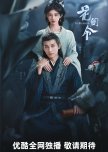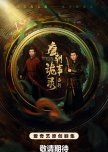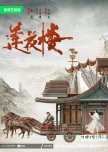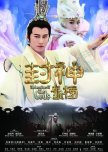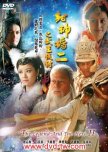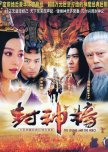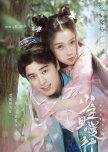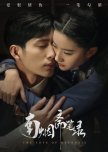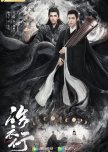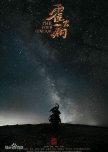- Română
- Français
- magyar / magyar nyelv
- עברית / עִבְרִית
- Titlu Nativ: 大唐狄公案
- De asemenea cunoscut ca și: Da Tang Qiu Gong An
- Regizor: Li Yun Liang
- Scenarist: Chen Si Yu
- Genuri: Thriller, Istoric, Mister
Unde Urmăriți Judge Dee's Mystery
Subscription (sub)
Gratuit (sub)
Subscription (sub)
Subscription (sub)
Cast și credite
- Zhou Yi WeiDi Ren JieRol Principal
- Wang Li KunCao AnRol Principal
- Elaine ZhongEmpress WuRol Principal
- Zhang Jia YiZhang Sun QingRol Principal
- Jason KangBai KaiRolul de Sprijin
- You YongHong LiangRolul de Sprijin
Recenzie

Can't judge a book by its cover.
Judge Dee is one of the most widely adapted and iconic ancient Chinese detective figures in popular culture. Di Renjie, or Judge Dee was a prominent Tang Dynasty official and twice chancellor to Empress Wu Tzetian. In the 19th century, Dutch sinologist and diplomat Robert Van Gulik translated an 18th century novel by an anonymous author Dí Gōng Àn/狄公案/Celebrated Cases of Judge Dee, into English. He went on to write numerous other Judge Dee mysteries, increasingly crafting Judge Dee in his own image. Van Gulik's books are regarded as a cultural bridge between East and West. They were devoured by the Chinese diaspora long before Tsui Hark fanned the flames with his wildly popular Detective Dee movies.Judge Dee's Mystery/大唐狄公案 loosely adapts nine cases from Van Gulik's novels for the small screen. This drama has notably high production values with lavish sets and costumes designed to create an immersive visual experience. The cases are well crafted with meticulous attention to detail and pay homage to Judge Dee's reputation as a people's hero; a champion of truth and justice for the common people. The cases highlight the discontent at some of Empress Wu's policies and shortcomings of the Tang Code, China's earliest legal code. Di Renjie gained many insights on the struggles and aspirations of the common citizens as magistrate of many important provinces across the empire. This shaped him into a great statesman and reformer in his later years; a chancellor often known to stand up to the formidable Empress.
This is the kind of drama that I should love - its my favorite genre featuring my favorite Chinese detective, set in my favorite Chinese dynasty and is helmed by a few of my favorite actors. The fight scenes are fantastic and the whole thing just looks gorgeous and bloody expensive. Which just goes to show you, you just can't judge a book by its cover. Because even though there are some really great moments, overall this drama just bored me silly.
The problem with the cases is that the four episode are too long when the villain is usually obvious from the beginning. There is not enough development of the suspects or the victims to make the audience care about the why-did-it. The audience also does not get to participate in the solution. Instead, the intricacies of the how-did-its are revealed as flashbacks in Judge Dee's mind's eye. The cases do get better in the latter half as they tie into Judge Dee's past and are shored up by the appearance of characters like Diao Xiaoguan (Zhang Ruoyun) and Lin Fan (Jiang Yi). Even then, the writing tends to tie the minute details together well while leaving big gaps on important things. Thus it is never fully explained what Diao Xiaoguan's motives were or what terrible thing the young scion of a noble household did that got him disowned and left to fend for himself.
The biggest issue with this drama is that Zhou Yiwei pretty much carries the entire crime-solving team by himself. None of the supporting characters are well designed and there is zero chemistry between Ma Rong, Qiao Tai and Judge Dee. This is made even more obvious when Deng Xiaoguan shows up and there is a tangible difference in the dynamics between everyone. Both of Dee's sidekicks appear and disappear inexplicably in the middle of a case as and when the plot requires. Ma Rong is written to be a comically obnoxious character but there is nothing funny about her obnoxiousness. This is the obvious the weak link in the cast and one that is utterly lacking in charisma that unfortunately gets too much airtime. Inasmuch as Zhou Yiwei and Wang Likun deliver a heart-stopping and mature portrayal of attraction and love at first sight, sadly Cao An is written to be a blank character; an elegant musician well past her youth clinging to a silly girlish fantasy over a highwayman (face palm). She only serves decorative purposes until the final case, where she finally gets to shine with her bravery and her foolishness.
In conclusion, this is a visually stunning production that stays true to its source material in terms of setting and thematic elements. However, despite some exciting and well choreographed action scenes, it fails to deliver truly captivating mysteries and is bogged down by lackluster supporting performances. While the cases in Strange Tales of Tang Dynasty (2022) are only a tad more tightly written, the humor and fantastic crime solving team dynamic elevates that series over this one. That said, Judge Dee's Mystery is not a terrible way to pass some time even though it ultimately falls short of making a lasting impression. I rate this Seasons 1 a 7.5/10.0. Season 2 has been filmed and should air by early 2025.
Considerați utilă această recenzie?

Everyone is responsible for the Result of their own actions and decisions.
The main question presented in the series is, Should one support lesser evil to achieve greater good?This series is adapted from the Dutch author Robert van Gulik’s novel of the same name. However in my opinion it is loosely based rather than adapted as the original stories are changed quite a lot. Youku gives a disclaimer in the beginning of each episode, "It is a work of fiction. Any resemblance (to real historical figures) is purely coincidental". Judge Dee (also known as Ti Jen-chieh or Di Renjie), the hero of Robert van Gulik’s 'Judge Dee' mystery series, is purportedly based on the historical Di Renjie (630–700), chancellor of Empress Wu Zetian during the Tang Dynasty, who earlier in his career served as a district magistrate.
This series includes a total of 9 cases solved by Judge Di Renjie. Each case is resolved within the span of around 3 to 4 episodes. In the beginning of the series, Di Renjie( Zhou Yi Wei) is portrayed as a disillusioned person, uninterested in joining the court. Without a doubt, he is a brilliant person having forward thoughts, suitable to help shape a dynasty. On the other hand Empress Wu Zetian (Zhong Chu Xi) is Introducing many 'new' reforms in the country benefitting the common people. However she is facing massive opposition from the majority of courtiers who believe a woman should not be given too much authority.
Empress Wu Zetian is impressed by Di Renjie but she thinks he needs more experience before he can be of any help to her. So after passing the imperial examination, Di Renjie is appointed as a magistrate of Penglai county, a remote frontier. At the end of the 4th episode Di Renjie appoints Hong Liang (You Yong) as his inspector, Ma Rong (Zi Ling) and Qiao Tai(Ji Ta) as his attendants. This ragtag group goes to the Penglai county to start their journey. In Penglai county Di Renjie meets Cao An (Wang Li Kun) who becomes Do Renjie's confidant and lover, becoming a soundboard for Di Renjie's inner thoughts and conflicts. Throughout the series the Empress Wu transfers Di Renjie to different places where he encounters different problems, faces varied situations and resolves the plight of local people. Empress Wu wants Di Renjie to gain experience so that later he could serve as her advisor in the court.
Di Renjie is warned by Grand Secretariat Wei Wuji - "you think all the new is good and right. But the 'new' means changes, chaos, severed heads and bloodshed and saber rattling and fight. "
Di Renjie is of the opinion, "A reform means replacing the old with the new. We should examine it's purpose and means. Now, new policies have been enacted. The new laws benefited the people, allowing them to live in peace."
In ancient China, a judge's role was that of a father figure in the society. He was a link between the rulers and the common people. Di Renjie proves to be an exemplary judge because besides his great observational skill, deduction ability, attention to detail and lightning fast reflexes, he also has compassion for people and a strong drive to uncover the truth while serving justice. Even when presented with bizarre cases, he finds a rational explanation. He disbelieves in coincidence and fate and is convinced that everything is planned, dictated by logic.
There are three story arcs to the series, the major arc is the change in the system due to Empress Wu's reforms and its implications faced by officials as well as Di Renjie gaining experience in order to later aid Empress Wu in court politics. The second arc is to discover Di Renjie's father's past, to understand what circumstances led him to commit suicide. Somehow Cao An and Heiyan are connected to his father's past. The third arc consists of all the short cases that Di Renjie solves.
I feel that somehow the method of solving the cases in the beginning didn't allow room for the audiences' deductions because only after Judge Di reaches a conclusion, the audience become aware of the importance of the clue. Hence the audience becomes mere spectators to the brilliance of Di Renjie and not active participants in the case solving. The later cases were quite simple as they were mere means to drive the story of Emotions VERSUS Law forward (greed, anger, ignorance, dislike, love, desire, hatred). To be a good judge, it is a prerequisite to be sagacious and impartial in upholding law, irrespective of the people involved. This becomes the underlying theme in later part of the cases.
Special attention is paid to details in the Script in order to recreate the culture, customs and traditions of ancient China. The lavish sets gives a feeling of grandiose. Detailed ornate costumes provides authenticity to the characters. The colour grading gives more cinematic aesthetics, the series is suited to be watched on the big screen to truly appreciate the picturisation. Cinematography is fantastic, comparable to any high budget cinema work. Breathtaking visuals of locations accompanied by strategic upbeat background music during key moments transports the viewers to the era of splendour. I feel a resemblance of the opening score and background score to the sound track of the movie 'Dune'. The intensity and tempo are a little different but the same kind of instrumental score accompanied by similar vocal is included in this series. Especially when the background music is played during strategic points of the case, it gives a hair raising subliminal effect.
The icing on the cake is the stellar Main Cast at the helm of the project. The series has also managed to rope in some popular as well as veteran actors for the Support Cast. All the actors perform their roles zealously making it possible for the viewers to experience the splendor of the era.
Overall: It is a good series, it is like a gourmet meal to be savoured slowly because there are lots of subtle dialogues, the whodunit is not as important as experiencing the culture of the period. Those looking for quick gratification and thrill of case solving may find it a little slow paced.
I have compiled notes on Detective Dee, Dutch author Robert Van Gulik, Empress Wu Zetian. I have also written summary of each cases in the discussion section of the drama page. Don't forget to read it for more information and details of this series.
Leaving links below for the notes.
1. Basic information
https://mydramalist.com/discussions/judge-dees-mystery/122837-basic-information-about-the-cases-and-judge-dee?pid=2949011&page=1#p2949011
2. All Nine case summaries, starting from case 1.
https://mydramalist.com/discussions/judge-dees-mystery/122837-basic-information-about-the-cases-and-judge-dee?pid=2957009&page=1#p2957009
I will also leave Clickable links of the above mentioned discussion section as a comment to this review.
Considerați utilă această recenzie?

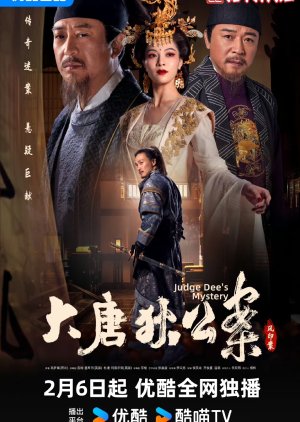









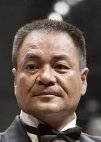
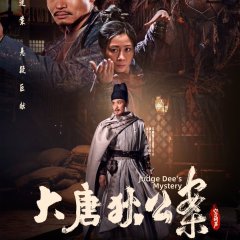
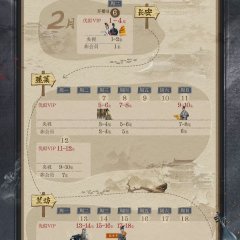
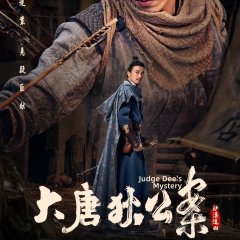
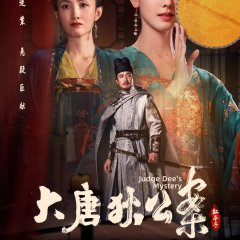
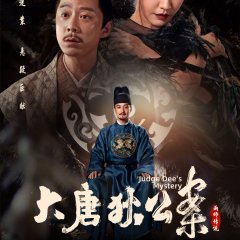
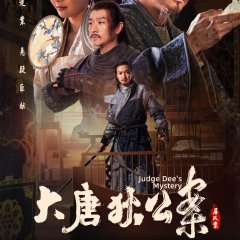
 1
1 2
2
